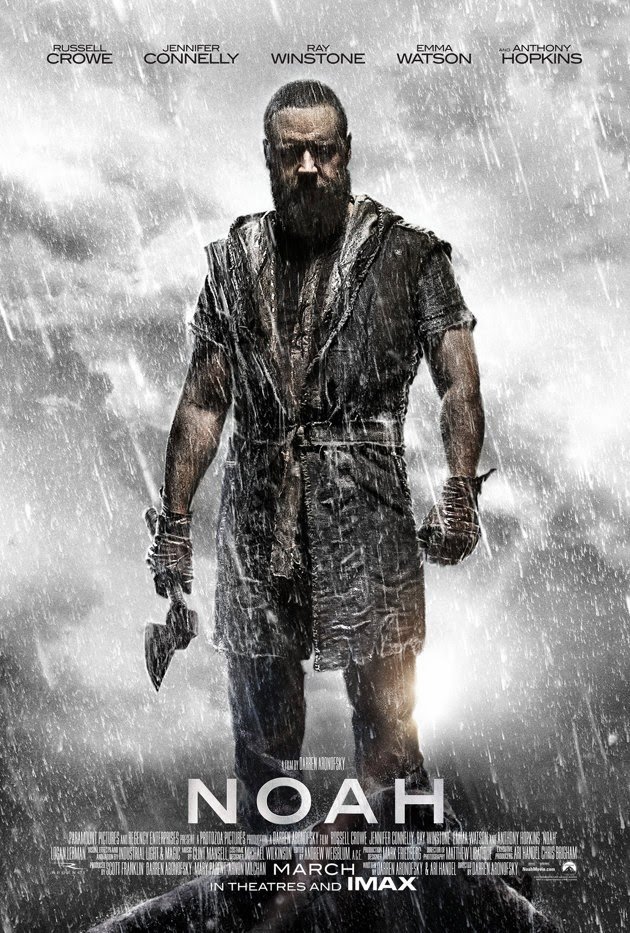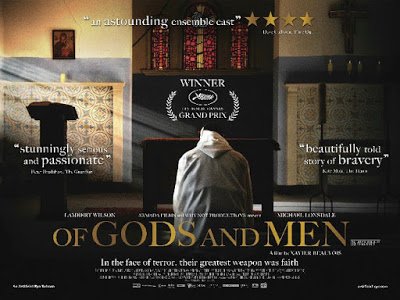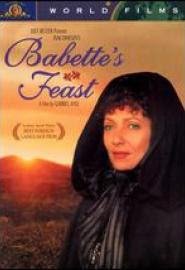
Blog & Resources
Looking for my thoughts on everything from bioethics to movies? You came to the right place. And while you’re here, check out my free downloadable resources.
Sign up to be notified when new posts release.
Check out the War and Peace Mini-Series
Have you been watching the "War and Peace" four-part miniseries?Simulcasting on Lifetime, A&E and HISTORY, the miniseries began on Monday, January 18, at 9pm ET/PT. The epic story features scoundrels and heroes presented by an award-winning cast. These include SAG Award® and Film Independent Spirit Award winner Paul Dano (Love and Mercy), Lily James (Rose on Downton Abbey), James Norton (Happy Valley), Oscar®, Golden Globe and BAFTA winner Jim Broadbent (Iris), Golden Globe® winner Gillian Anderson (The X-Files) and others. The four-week event airs Mondays, 9pm - 11pm ET/PT.A thrilling tale of love, war, and family, War and Peace is widely considered the greatest novel ever written. Set against the backdrop of Napoleon’s invasion of Russia, War & Peace is the ultimate story of passion and romance, scandal and deceit. It follows the rise and fall of five aristocratic families, all jockeying for top position in the waning days of imperial Russia. Pierre Bezukhov (Dano) suddenly finds himself in possession of great wealth at the mercy of fortune-hunters eager to take advantage of his naiveté. His friend, the dashing Andrei Bolkonsky (Norton), yearns for war-glory, but finds only heartbreak and disillusionment, which may be cured by the lovely young Natasha Rostov (James). She needs to marry well to save her family from financial ruin. This version (thankfully) omits the hundreds of pages of Tolstoy's battle scenes, and it goes "light" on the obsession Pierre's character has with reversing the poverty of the peasants on his land.Produced by BBC Cymru Wales Drama, in partnership with others, War & Peace was filmed in Russia, Lithuania, and Latvia. This production remains true to the faith themes that Tolstoy made central to his characters' development. The costumes are superb. The cinematography, fabulous. Enjoy!
On Beauty, The Senses, and Science
On Saturday, I organized some stacks of papers started before I got my PhD. The deadline has passed for blaming it on the busyness of school (I graduated in 2013!). In the stack I found some quotes I had saved that are worth sharing. . . .C. S. Lewis in Mere Christianity:There is no need to be worried by facetious people who try to make the hope of “Heaven” ridiculous by saying they do not want “to spend eternity playing harps.” All the scriptural imagery (harps, crowns, gold, etc.) is, of course, a merely symbolical attempt to express the inexpressible. People who take these symbols literally might as well think that when Christ told us to be like doves, he meant that we were to lay eggs.C. S. Lewis in Transposition and Other Addresses:How far the life of the risen [human] will be sensory, we do not now. But I surmise that it will differ from the sensory life we know here . . . as a flower differs from the bulb or a cathedral from an architect’s drawing.We do not want merely to see beauty. We want something else which can hardly be put into words—to be united with the beauty we see, to pass into it, to receive it into ourselves, to bathe in it, to become a part of it. If we take the imagery of Scripture seriously . . . we believe that God will one day give us the Morning Star and cause us to put on the splendour of the sun. We cannot mingle [now] with the splendours we see. But all the leaves of the New Testament are rustling with the rumour that it will not always be so.C. S. Lewis in God in the Dock:The angels…have no senses; their experience is purely intellectual and spiritual. That is why we know something about God which they don’t. There are particular aspects of His love and joy which can be communicated to a created being only by sensuous experience. Something of God which the Seraphim can never quite understand flows into us from the blue of the sky, the taste of honey, the delicious embrace of water whether cold or hot, and even from sleep itself.David Sayre in Something There Is:Many who have devoted their lives to science testify to their sense of awe at the great beauty that lies at the heart of nature. . . . The experiences of order, of symmetry, of finding deep and hidden relationships, of consistent metaphors and analogies—all are deeply scientific, as well as beautiful.
Why Ancient Noah's Faith Still Matters: Guest Post
 If Noah of “Noah and the Ark” fame had been interviewed by Gallup on issues of ethics and morality, he would have found himself completely outnumbered. To his credit, that did not stop Noah from living a blameless life. For the first 500 years of his life, Noah kept on doing right in a world that was going very wrong.
If Noah of “Noah and the Ark” fame had been interviewed by Gallup on issues of ethics and morality, he would have found himself completely outnumbered. To his credit, that did not stop Noah from living a blameless life. For the first 500 years of his life, Noah kept on doing right in a world that was going very wrong.Movie Review: Of Gods and Men (Des Hommes et des Dieux)

Tonight, at the recommendation of one of my DTS colleagues, I watched the film, Of Gods and Men.
The film receives its name from the verse in Psalms which says “Ye are gods and children of the Most High, but ye shall die like men” (86:2). The movie opens with this reference, which serves as a fitting introduction.
This is a true story of nine French Trappist monks (a sect of the Benedictines) assigned to a monastery in the Algerian mountains. The monks get caught in the tension between the army and terrorists when, during the 1996 Algerian Civil War, the latter try to overthrow the government. Because these men of God render medical aid to one of the terrorists (as they would anyone) on Christmas Eve, the rebel leader provides some protection—as long as he lives. But of course, he’s not living in a way that would qualify him for life insurance.
Remaining true to their calling, these Christians whose lives exemplify quietude continue to provide medical aid, moral presence, and spiritual friendships to the mostly poor Muslim people in the village in which they live. But the men are divided about whether to stay or flee.
Anyone who has ever endured God’s silence or wrestled with doubt will appreciate the treatment this subject receives as a sub-plot. The film also reminds viewers that experiencing great risk and martyrdom didn't just happen in the first century.
Throughout the film, the camera moves slowly, and so does the plot. But in this case that slowness adds to the beauty. The viewer enters into the monks’ experience—decelerating life’s pace, enjoying a symphony, experiencing their silence, savoring a good glass of wine, exchanging smiles and brotherly embraces, and kissing the cross. Subtitles include translation for the sung liturgy, which is full of scriptural references that match these believers’ experiences, whether with the enemy, with faith, or with darkness and dawn and the decision to lose one’s life in order to save it.
The acting is superb. And the performance of Michael Lonsdale, the physician monk, masterful.
Gender Difference: Lose the Boxes
Look up “gender” in the dictionary, and you may find “sex” as its definition. As if the words were interchangeable.In the not-so-distant past, “gender” referred only to grammatical fields. But in 1955, a sexologist suggested that we distinguish between biological sex and gender as a way of distinguishing between male and female. Another fifteen to twenty years passed before his idea caught on. In the 1970s, the field of gender studies emerged, and we began to define “gender” as the social construction of biological difference, or what we consider masculine and feminine behavior.The distinction between sex as biological and gender as the social construction of sex difference was to give us language to explore the dynamic behind why, when a woman in Kenya puts a roof on a house, she’s doing women’s work, but in America, most would consider a female roofer “unfeminine.” In ancient Rome, yellow was the “girl” color; in America, it’spink; in Kenya all colors are gender-neutral. In America the husband usually drives the family; in India the wife is more likely to serve her husband by driving. These examples suggest there’s a fluidity to how we define masculine and feminine behavior, and how we socially construct our ideals. It was the influences behind these behaviors and the desire to study them that led to the differing definitions of “sex” and “gender.”In the past few years I’ve seen a rise in the number of Christian small groups and curricula designed around discovering gender differences, and especially the associated question, “What is biblical masculinity and femininity”? More to the point, what social differences did God design to flow from our sex differences?It appears that Christians are unified in the assertion that God made men and women different by design. The problem that comes in, however, is when we assume those biological differences lead to clear and set social differences that we should pursue in order to become our true selves. None of us can agree on what those differences are. I would argue that they are as mysterious as God Himself, and as soon as we assign them clear categories, such as "men are initiators," and "women are followers," we create boxes that confine us in ways God did not intend.For example, he gave both man and woman dominion and he gave both man and woman the command to multiply. But we tend to put the dominion only with the man, and multiplication only with the woman. And in doing so we miss the emphasis God puts on men and women partnering. We start thinking stuff like, "Kids need to be with their moms more than with their dads." And that men were made for empire-building, but women were made for homemaking—making our singles feel especially unfulfilled.Here is how Piper/Grudem’s book defines masculinity and femininity:
- At the heart of mature masculinity is a sense of benevolent responsibility to lead, provide for, and protect womenin ways appropriate to a man’s differing relationships.
- At the heart of mature femininity is a freeing disposition to affirm, receive, and nurture strength andleadership from worthy men in ways appropriate to a woman’s differing relationships
Their definitions raise some serious questions. First, and most significant, and ironic: what is their basis for authority? Second, if they are correct, does this mean men and women find their true womanhood and manhood only when theyare together? If I am alone, do I lose my femininity because I have no man to affirm, receive, and nurture? Am I less of a “woman” during girls’ night out? And when my husband is playing basketball only with guys, does he lose his masculinity because there is no woman to lead, protect, and provide for? Why do we define our gender only in relationship to another human, and one of the opposite sex, no less?What we conclude about masculine and feminine behavior in the Bible usually comes from picking and choosing our narratives. What if we notice that Jacob cooked stew, Jesus cooked fish (in his resurrected body, no less), and the deacons served tables for widows? Shouldn’t we conclude that cooking and serving tables is really masculine work?Why do we gloss over the observations that woman are part of the priesthood of all believers, called to take up the shield of faith and fight (we have “a battle to fight” too)? What about the fact that Proverbs 31 is filled with “war” words, with “valor” being the first. We tend to translate that word as “noble” or “excellence” but it’s the same word used for David’s mighty warrior-men. Men are told to nurture their wives (Eph 5). But according to Piper/Grudem, isn’t nurturing more of awoman’s activity than a man's? I had a student two years ago who was astounded to discover that courage was not a male quality, but rather a human one.I believe pursuing femininity and masculinity is like pursuing happiness. The best way to attain it is to pursue something else. In this case, we find our true selves, become the men and women God intended us to be, as we pursue Jesus Christ, walk in the Spirit, and demonstrate love, joy, peace, patience, kindness, goodness, gentleness, faithfulness, and self-control. Sometimes doing so may even, at times, look un-macho and unfeminine to others, while God’s assessment may be “What a woman!” or “What a man!” We are not called to imitate the culture, even the Christian sub-culture. Followers of Christ are called to imitate Jesus Christ our Lord.
My Omaha Messages
The messages (35-45 minutes each) from my time in Omaha (Coffee and Stories) are now posted on the web. You may access them here:
Of Whom the World is Not Worthy...
ISTANBUL (Compass Direct News) – Pastor Yousef Nadarkhani refused to recant his Christian faith yesterday at the fourth and final court hearing in Iran to appeal his death sentence for apostasy (leaving Islam). Applying sharia (Islamic law), the court in Rasht gave Nadarkhani, 35, a final chance to recant Christianity and return to Islam in order for his life to be spared. Nadarkhani refused.
At an appeal hearing in June, the Supreme Court of Iran upheld Nadarkhani’s sentence but asked the court in Rasht to determine if he was a practicing Muslim before his conversion. The court declared that although Nadarkhani was not a practicing Muslim before his conversion, he was still guilty of apostasy due to his Muslim ancestry, a source close to Nadarkhani’s family told Compass.
A defense lawyer told Nadarkhani’s family and friends there is a way to take the case back to the Supreme Court or extend Nadarkhani’s prison sentence, but the source said the directives of the Supreme Court were clear and he didn’t think there was much hope. It is critical for foreign governments to negotiate and engage in diplomacy with Iranian authorities about Nadarkhani’s case, the source said, adding that advocates in the international community fear that authorities may execute Nadarkhani as early as midnight tonight or any time in the coming week. The court said a verdict on Nadarkhani would be issued within the next week. “They probably won’t kill him today, but they can do it whenever they want,” the source said. “Sometimes in Iran they call the family and deliver the body with the verdict.”




